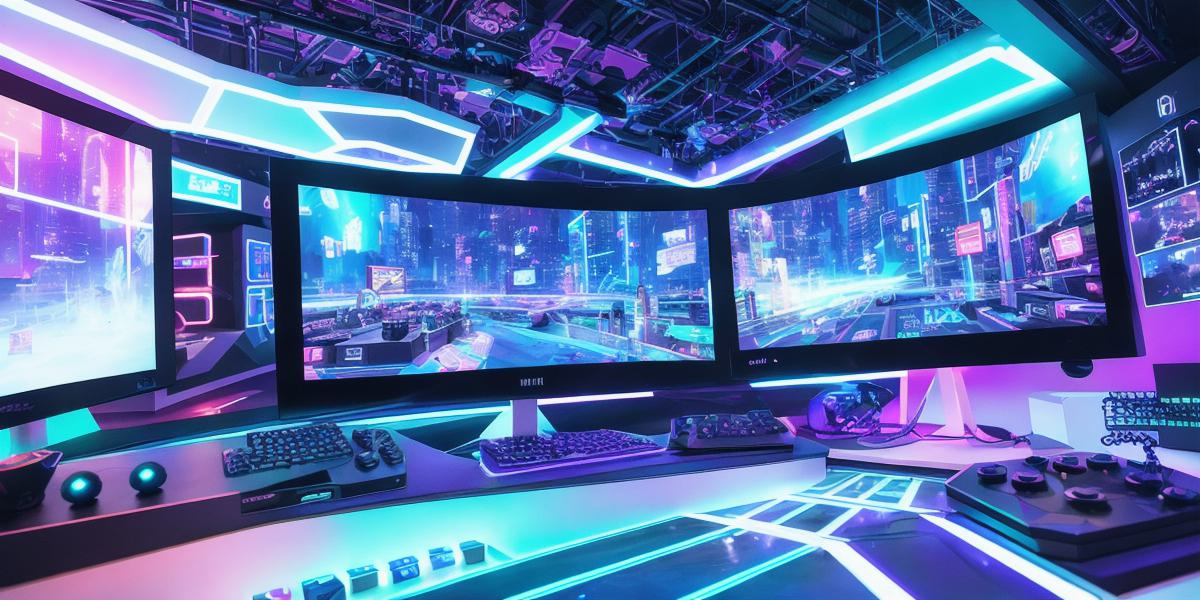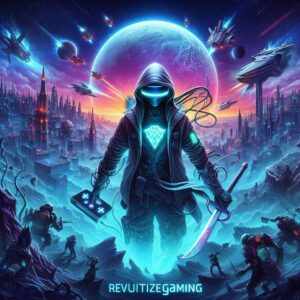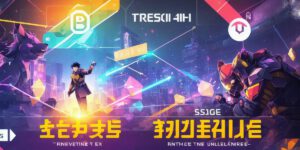Introduction
The gaming industry has experienced a significant transformation in recent years, with the emergence of non-fungible tokens (NFTs) and blockchain technology. NFT games are one of the latest trends in the world of gaming, offering players unique, collectable assets that can be traded on decentralized marketplaces. In this article, we will explore the basics of NFT games, their benefits, and how they work.
What are NFT Games?
NFT games are digital games that use blockchain technology to create unique, collectable assets such as characters, items, and other in-game elements. These assets can be bought, sold, and traded on decentralized marketplaces, offering players an opportunity to own a piece of the game’s economy. NFT games also offer players the ability to earn cryptocurrency by playing and completing challenges within the game.
How do NFT Games Work?
NFT games work using smart contracts on the blockchain. Smart contracts are self-executing programs that automatically enforce the terms of an agreement between buyers and sellers. In the case of NFT games, smart contracts are used to manage the ownership and transfer of in-game assets. When a player purchases an asset, the smart contract is executed, and the asset is transferred to the player’s digital wallet. The asset can then be traded on decentralized marketplaces, offering players the opportunity to profit from their in-game collectibles.
Benefits of NFT Games
One of the main benefits of NFT games is the opportunity for players to own a piece of the game’s economy. By buying and trading in-game assets, players can earn cryptocurrency and gain access to exclusive content within the game. This creates a sense of ownership and investment in the game, encouraging players to engage more deeply with the game’s community.
Another benefit of NFT games is the ability to create unique, collectable assets that cannot be replicated or duplicated. This creates scarcity and value for in-game items, making them more desirable and valuable to collect. This also encourages players to engage in gameplay more frequently, as they strive to earn rare and valuable in-game assets.
Case Studies: Cryptokitties and NBA Top Shot
Cryptokitties is one of the most popular NFT games to date, with over 1 million registered users and millions of dollars worth of transactions on its decentralized marketplace. The game allows players to breed and collect unique digital cats that can be traded on the blockchain. This creates a sense of ownership and investment in the game’s community, as players strive to own rare and valuable cats.
NBA Top Shot is another popular NFT game that has gained traction among sports fans. The game allows players to collect and trade unique digital moments from NBA games, such as dunks, blocks, and assists. This creates a sense of ownership and investment in the game’s community, as players strive to own rare and valuable moments from their favorite teams and players.
Conclusion
NFT games are the future of gaming and offer players unique, collectable assets that can be traded on decentralized marketplaces. By using blockchain technology and smart contracts, NFT games create a sense of ownership and investment in the game’s community, encouraging players to engage more deeply with the game’s content and community. As the popularity of NFT games continues to grow, we can expect to see more innovative and engaging games emerge in the future.



